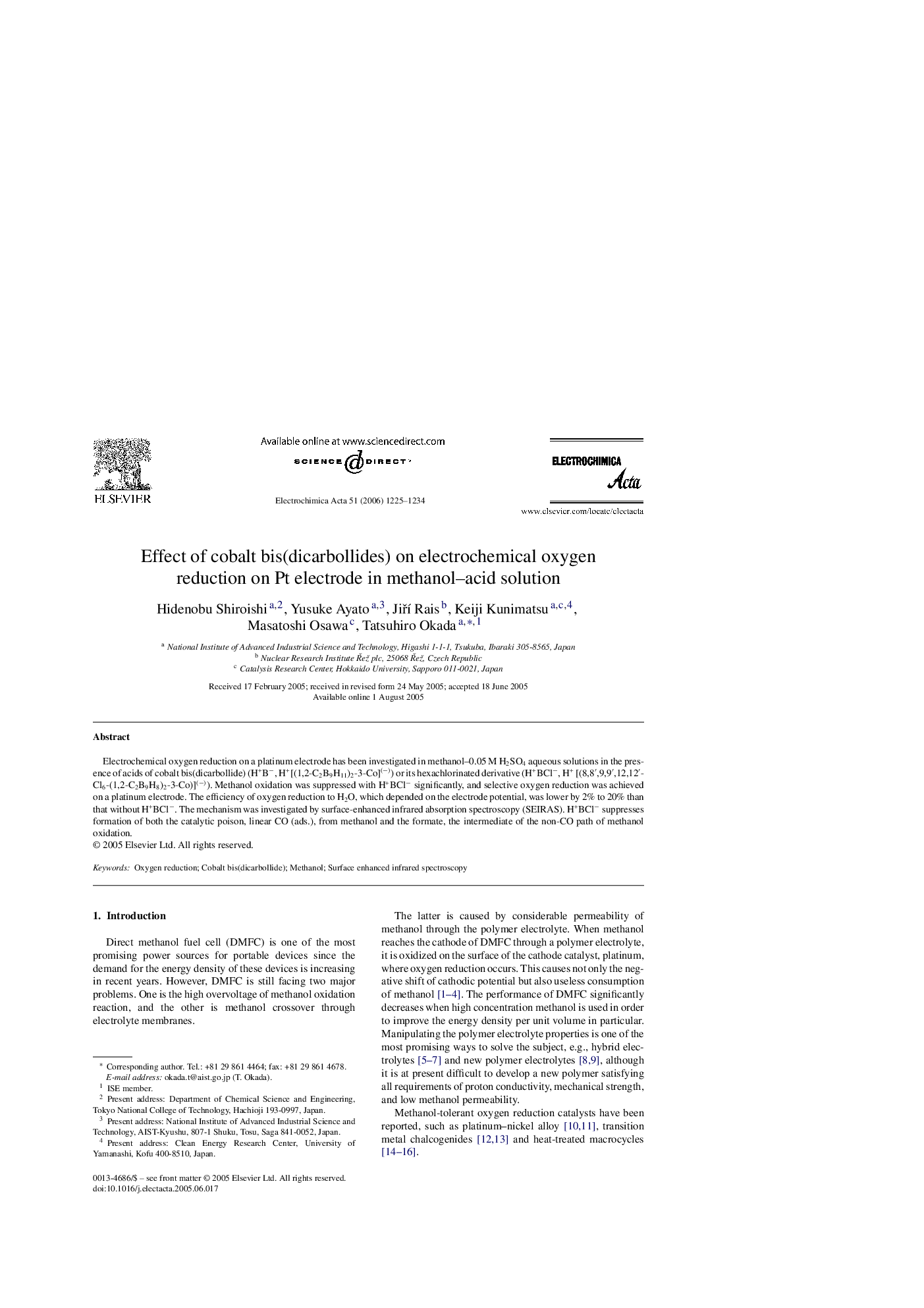| Article ID | Journal | Published Year | Pages | File Type |
|---|---|---|---|---|
| 196906 | Electrochimica Acta | 2006 | 10 Pages |
Electrochemical oxygen reduction on a platinum electrode has been investigated in methanol–0.05 M H2SO4 aqueous solutions in the presence of acids of cobalt bis(dicarbollide) (H+B−, H+[(1,2-C2B9H11)2-3-Co](−)) or its hexachlorinated derivative (H+BCl−, H+ [(8,8′,9,9′,12,12′-Cl6-(1,2-C2B9H8)2-3-Co)](−)). Methanol oxidation was suppressed with H+BCl− significantly, and selective oxygen reduction was achieved on a platinum electrode. The efficiency of oxygen reduction to H2O, which depended on the electrode potential, was lower by 2% to 20% than that without H+BCl−. The mechanism was investigated by surface-enhanced infrared absorption spectroscopy (SEIRAS). H+BCl− suppresses formation of both the catalytic poison, linear CO (ads.), from methanol and the formate, the intermediate of the non-CO path of methanol oxidation.
